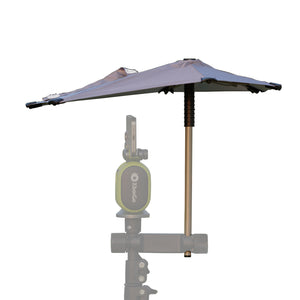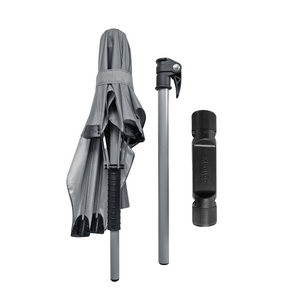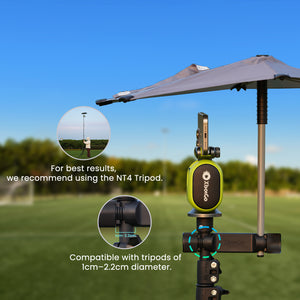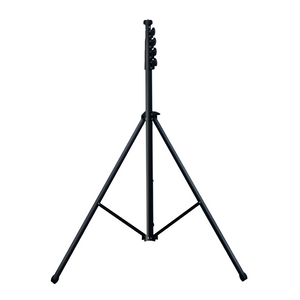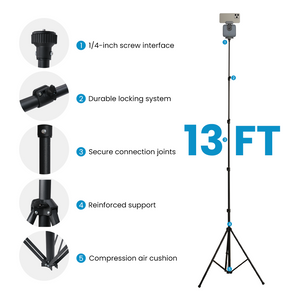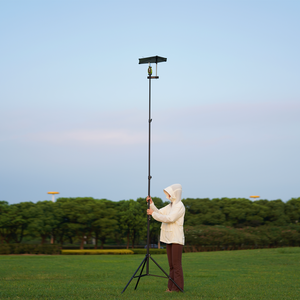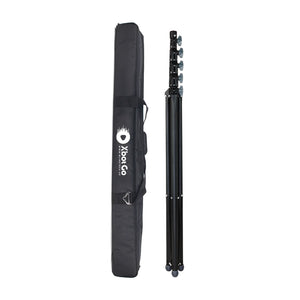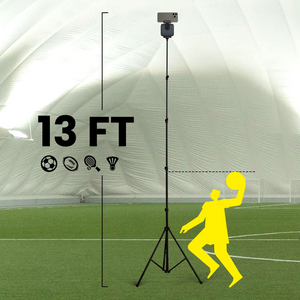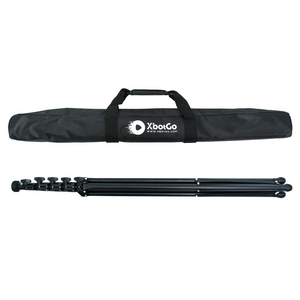XbotGo Chameleon AI Sports Camera
10 NHL Teams Still Chasing Their First Stanley Cup
In June 2024, the Florida Panthers finally broke through. After 30 years of heartbreak, near-misses, and rebuilds, they hoisted Lord Stanley's Cup for the first time in franchise history. Their victory wasn't just a championship—it was a beacon of hope for the 10 NHL teams still waiting to experience that ultimate glory.
For these franchises and their loyal fans, the question isn't if their day will come, but when. Some have been waiting over 50 years. Others have come agonizingly close, only to watch their dreams slip away in Game 7. Each team carries its own unique burden of disappointment, its own catalog of "what if" moments that haunt generations of fans.
The Heartbreak Hall of Fame
Buffalo Sabres: The Longest Current Playoff Drought
The Buffalo Sabres embody hockey heartbreak. Currently mired in a 13-year playoff drought—the longest active streak in the NHL—they haven't even sniffed the postseason since 2011. But for Sabres fans old enough to remember, the real pain goes back to June 19, 1999.
Brett Hull's skate was in the crease. Every Buffalo fan will tell you that. The controversial triple-overtime goal that gave the Dallas Stars the Stanley Cup should have been waved off under the rules at the time. Instead, it stands as one of the most disputed championship-clinching goals in NHL history. The phrase "No Goal" has become a rallying cry in Buffalo, a shorthand for decades of suffering.
The Sabres have made two Cup Finals (1975 and 1999) and lost both in six games. They've watched superstars like Dominik Hasek, arguably the greatest goaltender in NHL history, leave to win championships elsewhere. They've endured ownership changes, coaching carousels, and tank jobs that led nowhere.
Today's Sabres feature exciting young talent like Tage Thompson and Rasmus Dahlin, but until they can break their playoff drought, talk of a championship feels premature. For Buffalo fans, just making the playoffs would feel like winning the lottery.
Vancouver Canucks: Forever the Bridesmaid
No franchise better exemplifies Murphy's Law than the Vancouver Canucks. In their 54-year history, they've never selected first overall in the NHL Draft—not once. They've lost coin flips, lottery balls, and every other method of random chance the league has employed. When Connor McDavid and Connor Bedard were available, the Canucks were reportedly one lottery ball away from landing each generational talent.
The Canucks have reached three Stanley Cup Finals and lost them all—swept by the Islanders in 1982, defeated in seven games by the Rangers in 1994, and perhaps most painfully, falling in seven games to the Bruins in 2011. That 2011 loss still stings the deepest. The Canucks were the best team in hockey that season, led by the Sedin twins, Roberto Luongo, and Ryan Kesler. They took a 2-0 series lead, then a 3-2 series lead, only to lose the final two games at home.
Beyond the on-ice disappointments, the franchise has endured tragedy. Luc Bourdon, a promising young defenseman, died in a motorcycle accident. Manny Malhotra nearly lost his eye to a puck during a career year. The list of misfortunes reads like fiction.
Yet Vancouver fans remain among the most passionate in hockey. The current core of Elias Pettersson and Quinn Hughes represents renewed hope. But until they breakthrough, the Canucks remain a testament to how cruel hockey can be.
San Jose Sharks: The Best Team to Never Win
From 2004 to 2019, the San Jose Sharks were a model of consistency. They made the playoffs in 14 of 15 seasons, won their division five times, and regularly posted 100-point campaigns. At the heart of it all was one of the greatest cores never to win a Cup: Joe Thornton, Patrick Marleau, and Joe Pavelski.
The Sharks' lone Cup Final appearance came in 2016, when they fell to the Penguins in six games. But their history is littered with playoff collapses that rival any team's. They blew a 3-0 series lead to the Kings in 2014—just the fourth such collapse in NHL history. They were swept by the eventual champion Blackhawks in 2010 despite many considering them the better team.
Thornton, who won the Hart Trophy as league MVP in 2006, never got to hoist the Cup despite 1,539 points in 1,714 career games. Marleau, the franchise's all-time leading scorer, came up empty in 1,779 games—an NHL record for most games played without winning a championship.
Now in a full rebuild, the Sharks serve as a cautionary tale: even sustained excellence doesn't guarantee a championship. Sometimes, you need a little luck too, and San Jose never found theirs when it mattered most.
The Rising Contenders
Nashville Predators: Building on Heartbreak
The Predators' 2017 Cup Final run felt like destiny. A fanbase that throws catfish on the ice, the best home atmosphere in hockey, and a team that peaked at the perfect time. They went through Chicago, St. Louis, and Anaheim—three of the West's best teams—before running into the Penguins buzzsaw.
That Nashville team was built on elite defense (Roman Josi, P.K. Subban, Ryan Ellis, Mattias Ekholm) and spectacular goaltending from Pekka Rinne. They dominated possession and made life miserable for opponents. Yet they couldn't solve Matt Murray and Pittsburgh's opportunistic offense, falling in six games.
Since then, the Predators have remained competitive but haven't recaptured that magic. The 2024 free agency period saw them make aggressive moves, adding Steven Stamkos, Jonathan Marchessault, and Brady Skjei. The message was clear: the window is still open.
With Josi still playing at an elite level and Juuse Saros establishing himself as a top-tier goaltender, Nashville has the pieces to make another run. Their biggest question is whether their aging stars have one more deep playoff push in them.
Ottawa Senators: Youth Movement Ready to Explode
The Senators' last taste of playoff success came in 2017, when they came within one goal of the Stanley Cup Final. Craig Anderson's heroics and Erik Karlsson playing on one leg nearly pushed them past the Penguins in the Conference Finals. Instead, Chris Kunitz's double-overtime goal in Game 7 ended their dream.
Since then, it's been a complete teardown and rebuild. But unlike many rebuilds, this one seems to be working. Brady Tkachuk has emerged as one of the NHL's premier power forwards and leaders. Tim Stützle is blossoming into an elite center. Jake Sanderson looks like a future number-one defenseman.
The Senators haven't made the playoffs since that magical 2017 run, but the pieces are falling into place. They've added veteran goaltender Linus Ullmark to stabilize the crease. They have one of the deepest prospect pools in hockey. Most importantly, they have a core that's entering its prime together.
Ottawa represents hope for small-market teams. They're building the right way, and if they can keep their young stars together, their championship window could be opening soon.
Minnesota Wild: The State of Hockey Still Waiting
Minnesota calls itself the "State of Hockey," and with good reason. The state produces more NHL players per capita than anywhere else in the United States. High school hockey tournaments draw larger crowds than many professional teams. Yet somehow, the Wild have never reached a Cup Final in their 24-year existence.
The Wild's best chance came in 2003, just their third season, when they reached the Conference Finals before being swept by the mighty Ducks. Since then, they've been a model of mediocrity—good enough to make the playoffs regularly but never good enough to make serious noise.
The recent Zach Parise and Ryan Suter buyouts have finally given the Wild salary cap flexibility. Kirill Kaprizov has emerged as a legitimate superstar, one of the most exciting players in hockey. Matt Boldy, Brock Faber, and Marco Rossi represent a promising young core.
Minnesota's challenge has always been the same: how do you build a championship team when every opponent treats your building like their Stanley Cup Final? The intensity of playing in hockey-mad Minnesota can be both a blessing and a curse. But with their current trajectory, the Wild might finally have the talent to match their market's passion.
The Long-Term Projects
Columbus Blue Jackets: Learning to Win
The Blue Jackets' history can be summed up in one stunning moment: their 2019 sweep of the President's Trophy-winning Lightning. It was the franchise's first-ever playoff series victory, coming in their 19th season of existence. The cannon fired, the fans went wild, and for one brief moment, Columbus felt like a hockey town.
But that's been the high point. The Blue Jackets have made the playoffs just six times in 24 seasons. They've never advanced past the second round. They've watched franchise players like Rick Nash, Sergei Bobrovsky, Artemi Panarin, and Pierre-Luc Dubois all leave for greener pastures.
The current iteration features promising young talent like Kent Johnson and Adam Fantilli. They've tried to build a winning culture, but instability in the front office and behind the bench has hindered progress. Columbus represents the challenge of building a winner in a non-traditional market without the benefit of high draft picks or marquee free agent signings.
Winnipeg Jets: So Close, Yet So Far
When the Jets returned to Winnipeg in 2011, the city erupted. After losing their beloved team to Phoenix in 1996, hockey was back in Manitoba. The passion was evident immediately—the MTS Centre (now Canada Life Centre) became one of the loudest buildings in hockey, with the "Winnipeg White Out" creating an intimidating playoff atmosphere.
The Jets' best chance came in 2018 when they reached the Conference Finals. With Mark Scheifele, Blake Wheeler, and Connor Hellebuyck leading the way, they looked poised to bring Lord Stanley's Cup back to Canada. Instead, they lost to the expansion Golden Knights in five games.
Since then, it's been a series of first-round exits and disappointments. Hellebuyck remains one of the best goaltenders in the world, but the supporting cast has aged and key players have requested trades. The Jets find themselves at a crossroads—retool around Hellebuyck or tear it down and start fresh.
For a market that loves hockey as much as Winnipeg, the lack of playoff success stings. But Jets fans know what it's like to lose hockey entirely, so they cherish what they have while hoping for more.
Seattle Kraken: Just Getting Started
The Kraken are still writing their story. In just their second season (2022-23), they made a surprising playoff run, knocking off the defending champion Avalanche before pushing the Stars to seven games. It showed that with smart management and a bit of luck, expansion teams can compete quickly.
Seattle has advantages many Cup-less teams don't: a rabid fanbase, deep-pocketed ownership, no bad contracts or past mistakes to overcome, and the benefit of learning from Vegas's expansion success. They've built their team around strong goaltending, defensive structure, and balanced scoring.
Climate Pledge Arena rocks during games, and the Kraken have already established unique traditions. While a championship might still be years away, Seattle has positioned itself better than most expansion teams. Their patient approach might be the blueprint for sustainable success.
Utah Hockey Club: New City, Same Challenges
The newest entry on this list comes with decades of baggage. The franchise that started in Winnipeg, moved to Phoenix, and struggled for relevance for years has found new life in Salt Lake City. But changing addresses doesn't erase history—this organization has never advanced past the Conference Finals in 45 years of existence.
The Utah Hockey Club inherits some promising pieces: Clayton Keller's scoring touch, Jakob Chvojka's playmaking ability, and a fanbase desperate for major league hockey. They've already shown ambition in the trade market, acquiring Mikhail Sergachev and John Marino to bolster their defense.
Still, questions remain. Can a market known more for winter Olympics than NHL hockey support a struggling franchise? Will top free agents want to sign in Utah? The early returns are positive—season ticket sales have exceeded expectations and the temporary Delta Center has been loud. But building a championship culture takes more than just enthusiasm.
The Hope That Keeps Fans Coming Back
Every team on this list has a legitimate reason for optimism. Young stars are emerging across the league. Smart management groups are learning from past mistakes. The salary cap era has created more parity than ever before. In the last 15 years, we've seen three first-time champions, proving that droughts do end.
For Buffalo fans still muttering about Brett Hull's skate, for Vancouver fans wondering when the lottery balls will finally bounce their way, for San Jose fans mourning the Thornton-Marleau era, remember this: every dynasty starts somewhere, and every drought eventually ends.
The Panthers waited 30 years. The Blues waited 52. The Capitals needed 44 seasons and dozens of playoff disappointments before Ovechkin finally lifted the Cup. Your team's time will come.
Because in hockey, hope isn't just an abstract concept—it's what gets you through the dark winters, the playoff disappointments, the decades of waiting. It's what fills arenas in Buffalo despite 13 years without meaningful games. It's what keeps Vancouver fans believing despite every cosmic force working against them. It's what makes hockey the greatest game on earth.
So to fans of these 10 teams: keep believing. Your day is coming. And when it does, the wait will make it that much sweeter. After all, without the drought, how would you appreciate the rain?
XbotGo Chameleon AI Sports Camera
Capture every moment with AI-powered tracking. Perfect for coaches, parents, and athletes who want seamless footage without manual filming.








 Soccer
Soccer Basketball
Basketball Ice Hockey
Ice Hockey Football
Football Handball
Handball










